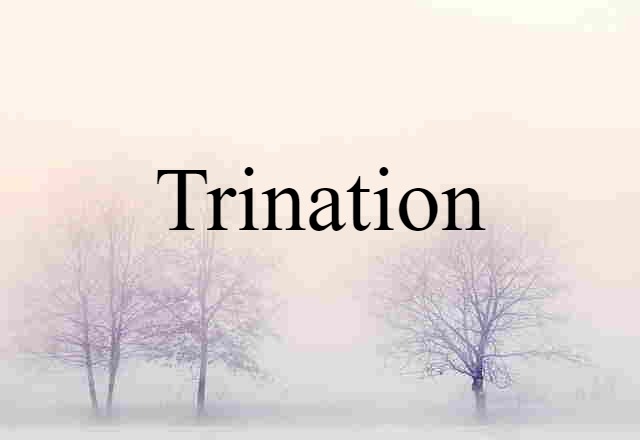- to become hardened into ice or into a solid body; change from the liquid to the solid state by loss of heat.
- to become hard or stiffened because of loss of heat, as objects containing moisture: Meat will freeze in a few hours.
- to suffer the effects of intense cold; have the sensation of extreme cold: We sat there freezing until the heat came on.
- to be of the degree of cold at which water freezes: It may freeze tonight.
- to lose warmth of feeling; be stunned or chilled with fear, shock, etc.: My heart froze when she told me the news.
- to become immobilized through fear, shock, etc.: When he got in front of the audience he froze.
- to stop suddenly and remain motionless; halt: I froze in my tracks.
- to become obstructed by the formation of ice, as pipes: Our basement water pipes often freeze in winter.
- to die or be injured because of frost or cold.
- (of a screw, nail, or the like) to become rigidly fixed in place, as from rust or dirt.
- to become fixed to something by or as if by the action of frost.
- to become unfriendly, secretive, or aloof (often followed by up): He froze at such a personal question.
- (of hardware or software) to become temporarily inoperable; cease to function (often followed by up): The new software made my laptop freeze.
- to harden into ice; change from a fluid to a solid form by loss of heat; congeal.
- to form ice on the surface of (a river, pond, etc.).
- to harden or stiffen (an object containing moisture) by cold.
- to quick-freeze.
- to subject to freezing temperature; place in a freezer or in the freezing compartment of a refrigerator.
- to cause to suffer the effects of intense cold; produce the sensation of extreme cold in.
- to cause to lose warmth as if by cold; chill with fear; dampen the enthusiasm of.
- to cause (a person or animal) to become fixed through fright, alarm, shock, etc.: Terror froze him to the steering wheel.
- to kill by frost or cold: A late snow froze the buds.
- to fix fast with ice: a sled frozen to a sidewalk.
- to obstruct or close (a pipe or the like) by the formation of ice: The storm had frozen the hydrant.
- to fix (rents, prices, etc.) at a specific amount, usually by government order.
- to stop or limit production, use, or development of: an agreement to freeze nuclear weapons.
- to render impossible of liquidation or collection: Bank loans are frozen in business depressions.
- to render (hardware or software) temporarily inoperable: Ironically, it was a security update for my operating system that froze my computer.
- to render part of the body insensitive to pain or slower in its function by artificial means.
- Cards.
- to play a wild card on (the discard pile) so as to make it frozen.
- to eliminate (other players) in a game of freezeout.
- to photograph (a moving subject) at a shutter speed fast enough to produce an unblurred, seemingly motionless image.
- to stop by means of a freeze-frame mechanism: You can freeze the action at any point.
- to maintain possession of (a ball or puck) for as long as possible, usually without trying to score, thereby reducing the opponent's opportunities for scoring.
- to hold (a puck) against the boards with the skates or stick, causing play to stop and forcing a face-off.
- the act of freezing; state of being frozen.
- a widespread occurrence of temperatures below 32°F (0°C) persisting for at least several days: A freeze is expected in the coastal areas.
- a frost.
- a cease in function when software gets caught in loops or hardware lacks sufficient processing power to continue a task.
- a legislative action, especially in time of national emergency, to control prices, rents, production, etc.: The government put a freeze on new construction.
- a decision by one or more nations to stop or limit production or development of weapons, especially nuclear weapons.
- to adhere closely to; hold on; seize.
- to exclude or compel (somebody) to withdraw from membership, acceptance, a position of influence or advantage, etc., by cold treatment or severe competition.
- to coat or become coated with ice: The lake freezes over for several months each year.
- to change (a liquid) into a solid as a result of a reduction in temperature, or (of a liquid) to solidify in this way, esp to convert or be converted into ice
- to cover, clog, or harden with ice, or become so covered, clogged, or hardened
- to fix fast or become fixed (to something) because of the action of frost
- to preserve (food) by subjection to extreme cold, as in a freezer
- to feel or cause to feel the sensation or effects of extreme cold
- to die or cause to die of frost or extreme cold
- to become or cause to become paralysed, fixed, or motionless, esp through fear, shock, etc
- to cause (moving film) to stop at a particular frame
- to decrease or cause to decrease in animation or vigour
- to make or become formal, haughty, etc, in manner
- to fix (prices, incomes, etc) at a particular level, usually by government direction
- to forbid by law the exchange, liquidation, or collection of (loans, assets, etc)
- to prohibit the manufacture, sale, or use of (something specified)
- to stop (a process) at a particular stage of development
- to render (tissue or a part of the body) insensitive, as by the application or injection of a local anaesthetic
- to cling
- the act of freezing or state of being frozen
- a spell of temperatures below freezing point, usually over a wide area
- the fixing of incomes, prices, etc, by legislation
- another word for frost
- a command to stop still instantly or risk being shot

More Definitions
- SPITTLE INSECT (noun) Definition, Meaning & Examples
- INTER ALIA (noun) Definition, Meaning & Examples
- TUMORIGENESIS (noun) Definition, Meaning & Examples
- GRANDUNCLE (noun) Definition, Meaning & Examples
- DEBRIEFING (noun) Definition, Meaning & Examples
- SUPERINTEND (noun) Definition, Meaning & Examples















